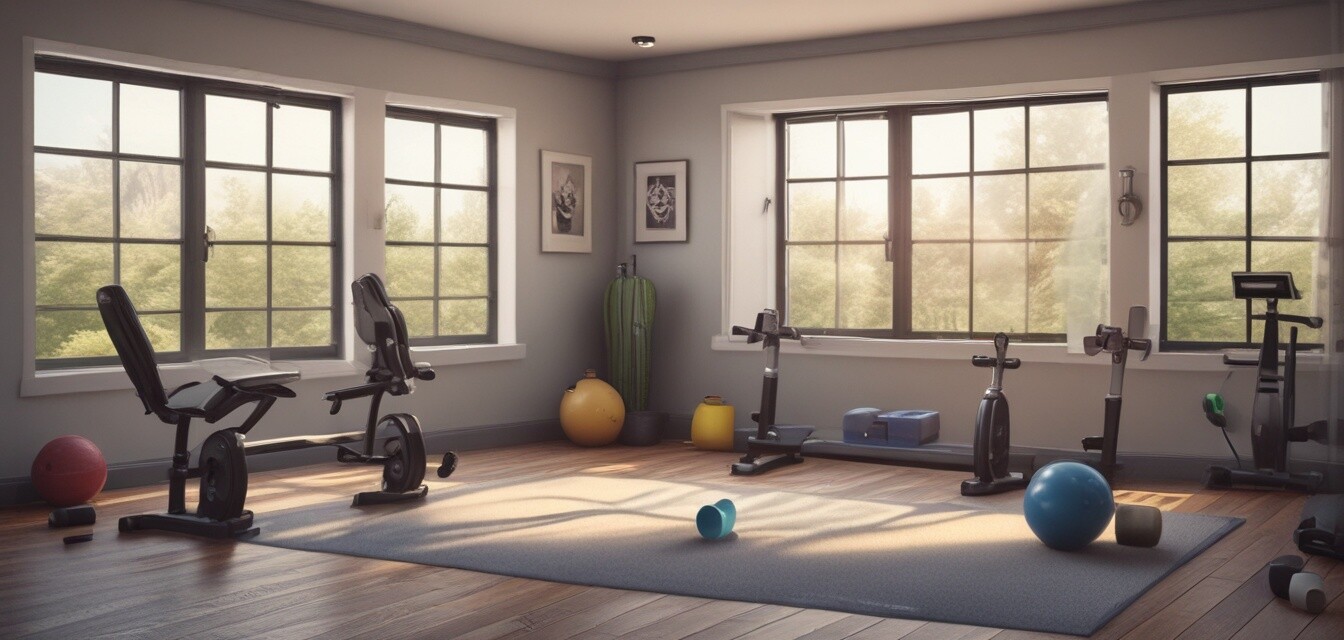
Mental Preparedness for Senior Weightlifting: Tips & Techniques
- Mental readiness is essential for seniors engaging in weightlifting.
- Techniques such as visualization and mindfulness can enhance focus.
- Setting realistic goals is key to maintaining motivation.
- Practice a consistent routine to foster a sense of normalcy and control.
- Listening to your body can prevent injuries and promote safety.
As seniors embark on their strength training journey, mental preparedness is just as crucial as physical readiness. Engaging in weightlifting offers numerous benefits, but being mentally prepared can significantly enhance your experience and outcomes. This article will delve into the importance of mental readiness, offer practical tips, and share techniques to foster focus and confidence.
The importance of mental preparedness
Before lifting weights, it's not just the muscles that need to be ready. Mental preparedness can help seniors overcome barriers such as fear or anxiety about exercise. It provides the clarity and focus needed for safe and effective workouts. Here’s why mental readiness is vital:
- Boosts Confidence: Building mental strength can enhance self-efficacy when lifting weights.
- Enhances Focus: A clear mind can lead to better technique and performance.
- Reduces Anxiety: Overcoming mental barriers can diminish fears associated with lifting weights.
- Encourages Consistency: A strong mental framework helps maintain a regular exercise routine.
Techniques to boost mental readiness
Employing certain techniques can significantly enhance mental preparedness for weightlifting. Here are some effective methods:
1. Visualization
Visualization involves picturing yourself successfully completing exercises. This mental practice can be particularly powerful for seniors.
- Visualize the lifting process, from setting up your equipment to completing your last rep.
- Imagine the positive feelings associated with your workout, such as accomplishment and vitality.
2. Mindfulness and Breathing Exercises
Mindfulness isn’t just for yoga or meditation; it has applications in weightlifting too. Practicing mindfulness can enhance your awareness and help you stay present during workouts.
- Focus on your breathing as you lift, taking deep inhalations and exhalations to keep your body relaxed.
- Stay present by concentrating on your form and how each move feels.
3. Setting Realistic Goals
Creating achievable goals can give you a sense of direction and purpose. Goals should be specific, measurable, achievable, relevant, and time-bound (SMART).
| Goal Example | Description |
|---|---|
| Increase dumbbell weight | Gradually lift heavier weights by 2-5 lbs every month. |
| Complete a specific number of reps | Aim for three sets of 10-15 reps within a month. |
| Improve balance | Incorporate balance boards into your training routine. |
Creating a Routine for Consistency
The importance of a consistent exercise routine cannot be overstated. Developing a regimen can create a sense of normalcy and reliability, both crucial for mental preparedness.
- Schedule workout days and stick to them just like any appointment.
- Begin each workout with a short mental rehearsal, picturing successful movement and progress.
- End with a wind-down period to reflect on accomplishments, no matter how small.
Listening to Your Body
One of the simplest yet most effective ways to maintain mental readiness is to listen to your body. This involves being aware of how your body feels throughout your workouts.
- Pay attention to any discomfort or pain, and don’t hesitate to modify or skip exercises if needed.
- Respect your limits, and don’t push yourself beyond what feels safe and manageable.
Common Mental Barriers
Understanding common mental barriers can help in developing strategies to overcome them:
| Mental Barrier | Possible Solution |
|---|---|
| Fear of injury | Focus on proper technique and use safety equipment. |
| Low confidence | Engage in smaller, incremental goals that lead to bigger achievements. |
| Lack of motivation | Join a community or find a workout buddy for social support. |
Final Thoughts
Being mentally prepared is as crucial as being physically ready when it comes to strength training for seniors. By employing techniques such as visualization, mindfulness, and creating realistic goals, seniors can improve their mental readiness and thus enhance their overall performance in weightlifting. Regularly practicing these methods can lead to increased confidence, reduced anxiety, and a lasting commitment to strength training.
Pros
- Enhanced focus during workouts.
- Increased confidence and reduced anxiety.
- Setting clear goals fosters motivation.
- Listening to your body can prevent injuries.
Cons
- Requires consistent practice to be effective.
- Initial feelings of awkwardness when trying mindfulness.
- May take time to see significant mental changes.
To explore more about safe strength training practices, check out our Safety Tips section. For insights into the best equipment tailored for seniors, head over to our Exercise Equipment page. Gaining knowledge is key to a successful training regime!